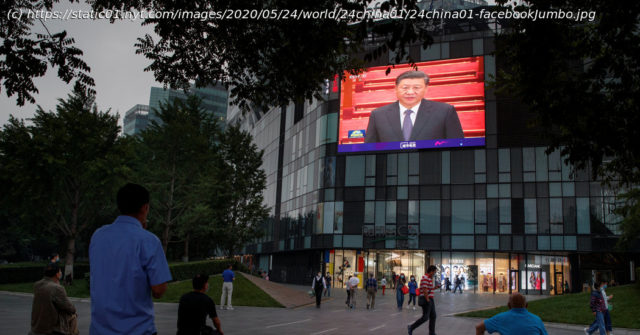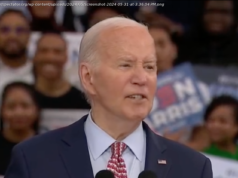Xi Jinping’s China, emboldened by its handling of the coronavirus pandemic, no longer seems constrained by the threat of international rebuke.
China’s move to strip away another layer of Hong Kong’s autonomy was not a rash impulse. It was a deliberate act, months in the making. It took into account the risks of international umbrage and reached the reasonable assumption that there would not be a significant geopolitical price to pay.
As a provocative move, it is just the latest.
With the world distracted by the pandemic’s devastating toll, China has taken a series of aggressive actions in recent weeks to flex its economic, diplomatic and military muscle across the region.
China’s Coast Guard rammed and sank a fishing boat in disputed waters off Vietnam, and its ships swarmed an offshore oil rig operated by Malaysia. Beijing denounced the second inauguration of Taiwan’s president, Tsai Ing-wen, and pointedly dropped the word peaceful from its annual call for unification with the island democracy.
Chinese troops squared off again last week with India’s along their contentious border in the Himalayas.
All are longstanding tensions, but the decision to impose new national security laws on Hong Kong, bypassing the semiautonomous territory’s own legislative process, shows what can happen with an unbridled China, no longer restrained by the fear of international rebuke.
“There was this idea before about China being cautious and trying to cultivate its soft power around the world,” said Jean-Pierre Cabestan, a professor at Hong Kong Baptist University and the author of “China Tomorrow: Democracy or Dictatorship?” “Those times are gone with Xi Jinping.”
Mr. Xi, who in seven years in power has pursued a “great rejuvenation” of the Chinese state, has emerged from the pandemic newly emboldened, seizing on nationalistic themes to deflect from the government’s early failures in stopping the coronavirus’s spread.
He still faces enormous economic and diplomatic challenges. New protests erupted in Hong Kong on Sunday, and resistance to greater control by Beijing could threaten the territory’s role as a financial center.
Officials and state media outlets have lashed out at the United States and other countries, accusing them of supporting “separatists” and “terrorists” in an effort to weaken the power of the Communist Party.
On the defensive over their handling of the virus, President Trump and his aides have sought to blame China for the pandemic’s toll in the United States. The criticism, by all appearances, has done little to moderate Mr. Xi’s actions. It may even have emboldened them, as Chinese officials point to the failures in the United States and other countries as evidence of the Communist Party’s better model of governance.
The Trump administration has, in turn, intensified its actions against China, imposing restrictions on trade and technology, praising Ms. Tsai’s inauguration and even marking the 25th anniversary of the disappearance of the 11th Panchen Lama, the second-highest figure in Tibetan Buddhism.
“The United States, in fact, is pouring oil on the fire, barrel by barrel,” Tian Feilong, a professor of law at Beihang University in Beijing, said in a telephone interview. “The central government is therefore actually just safeguarding its own most basic national security interests.






